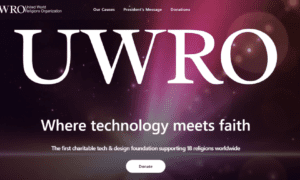Mobile technology has fundamentally transformed the way businesses interact with their markets. With the advent of smartphones and tablets, companies are finding increasingly innovative ways to connect with customers and streamline operations. The escalating use of mobile applications stands out as a significant evolution in consumer behavior. These tools not only provide convenience but also a personalized user experience, which is critical in today’s competitive marketplace.
The integration of mobile applications into daily life is reshaping how consumers make purchasing decisions, seek information, and interact with brands. This shift is evidenced by the substantial time users spend on apps and the growing reliance on mobile devices for a variety of functions, from shopping and banking to entertainment and communication. As a leading mobile app development agency, we understand these trends and are positioned to help brands harness the power of mobile technology to enhance their customer interactions.
The core objective of this article is to delve into the strategies businesses employ to harness the power of mobile applications to enhance customer engagement. By doing so, organizations not only meet but also exceed the evolving expectations of their clientele, thereby fostering loyalty and driving business growth. The following sections will explore practical examples and methodologies that highlight the successful integration of mobile apps into customer engagement strategies, providing valuable insights for businesses looking to capitalize on this trend.
Understanding Customer Engagement Through Mobile Apps
Customer engagement refers to the interaction between a customer and a brand through various touchpoints, with mobile apps increasingly becoming a focal point of this interaction. Engagement in the context of mobile apps involves activities that not only draw in users but also keep them interested and active over time. Effective engagement strategies harness the unique capabilities of mobile technology to offer more value, ensuring that interactions are meaningful and mutually beneficial.
Mobile apps excel in promoting customer engagement through several distinctive features. Personalized content, tailored according to user preferences and behavior, ensures that users find value in every interaction. Push notifications serve as a direct communication channel, enabling businesses to send timely and relevant information that encourages users to open the app and engage with new content. Other features like in-app messaging and loyalty programs further enhance engagement by making the user experience more interactive and rewarding.
Evidence of the effectiveness of these strategies is abundant in various industry reports and case studies. For instance, a retail company implemented a strategy where they used data analytics to provide personalized shopping recommendations through their mobile app. This approach resulted in a 40% increase in user engagement and a significant boost in sales. Another case study from the financial sector shows how a bank’s mobile app used push notifications to remind customers of pending transactions, which improved customer satisfaction ratings by 30% due to the enhanced communication and transparency.
These examples underscore the critical role mobile apps play in cultivating deeper customer connections. By leveraging technology to customize experiences and communicate effectively, businesses can significantly increase engagement and foster a loyal customer base. The next sections will explore specific methodologies and technologies that further this engagement, providing a blueprint for integrating mobile apps into broader customer interaction strategies.
Key Features of Engaging Mobile Apps
Engagement in mobile apps hinges on several core features, each designed to enhance user experience and sustain user interest over time. An intuitive, user-friendly design is foundational; it ensures that users can navigate the app effortlessly, which is crucial for initial adoption and long-term retention. Responsiveness and fast loading times are equally vital, as they reflect the app’s reliability and respect for the user’s time – qualities that today’s consumers demand.
Interactive elements within an app play a significant role in maintaining user engagement. In-app messaging allows for real-time communication with users, providing support and promoting offers directly within the user environment. Feedback forms are essential for gathering user insights, making them feel heard, and iteratively improving the app based on user suggestions. Social sharing options extend the app’s reach and impact by seamlessly connecting app experiences with broader social networks, where users can share achievements, content, or products they like, thus attracting new users organically.
The incorporation of advanced technologies such as Augmented Reality (AR), Virtual Reality (VR), and Artificial Intelligence (AI) can transform a conventional app into an immersive experience. AR adds a layer of digital interface to the real world, enhancing the practical utility of an app, such as in retail apps that allow users to visualize products in their home environment before purchasing. VR creates a fully immersive environment, ideal for games and interactive learning apps, providing a depth of engagement that is profoundly impactful. AI leverages user data to personalize interactions, predict behaviors, and automate tasks, which not only enhances user experience but also optimizes app functionality.
A practical example of these principles in action is seen in the work of JetRuby Agency, a firm that started as a startup and has grown into a full-scale software development company. Throughout its growth, JetRuby has specialized in prototyping, engineering, and launching innovative, client-centric software solutions. Their commitment to integrating responsive design, interactive features, and cutting-edge technologies like AR and AI into their applications underscores the potential of well-crafted mobile apps to significantly boost customer engagement.
As businesses continue to explore new ways to captivate and maintain their audiences, the features discussed herein are not merely optional; they are essential components that define the success of a mobile application in a crowded marketplace. As a mobile app development company, we will explore practical implementation strategies in the next section that can help businesses maximize the potential of these features to create truly engaging mobile apps.
Strategies for Sustaining Engagement
Maintaining long-term engagement with mobile apps requires a proactive approach centered around continual improvement and strategic innovation. Regular updates are fundamental to this process, as they address emerging user needs and technological advancements. These updates can range from aesthetic refreshes and functionality enhancements to the integration of new features that keep the app relevant and engaging.
Loyalty programs are another effective strategy for sustaining user engagement. By rewarding continued use with perks, discounts, or exclusive content, businesses can encourage ongoing interaction and deepen user commitment. Gamification takes this a step further by incorporating elements like points, leaderboards, and challenges, which can significantly increase time spent on the app and strengthen user loyalty.
Analyzing user data plays a critical role in these engagement strategies. Through detailed analytics, businesses can gain insights into user behavior patterns, preferences, and pain points. This data is invaluable for refining app features and tailoring content to better meet the needs of the audience. Effective use of analytics enables a business to anticipate user needs and deliver a more personalized, engaging app experience.
Several businesses have demonstrated success in retaining their app users over time by employing these strategies. For example, a popular fitness app continuously updates its content and features, offering new workouts and challenges that keep its user base active and engaged. By using analytics to monitor user progress and feedback, the app introduces targeted updates that cater directly to the evolving demands of its community. Similarly, a retail app uses its loyalty program to provide users with personalized offers based on their shopping history and preferences, resulting in higher engagement rates and repeat customers.
These examples illustrate the power of strategic engagement initiatives in creating a sustainable and beneficial relationship between users and mobile apps. By continuously innovating and responding to user data, businesses can ensure their apps remain indispensable tools for their audience. The conclusion will synthesize these insights and offer final thoughts on maximizing mobile app engagement for business success.
The Future of Customer Engagement Through Mobile Apps
The increasing reliance on mobile applications has reshaped customer engagement, providing businesses with a direct and highly personalized way to connect with their audiences. As discussed, mobile apps enhance engagement through intuitive design, real-time communication, and personalized experiences. Features like push notifications, interactive elements, and advanced technologies, including AI and AR, further elevate user interaction and retention. Long-term engagement strategies, such as frequent updates, loyalty programs, and gamification, ensure that apps remain relevant and valuable to their users over time.
For businesses looking to maximize their mobile app potential, understanding customer behavior is essential. Engagement is not just about offering a digital service – it is about creating an experience that aligns with user preferences and expectations. The success of an app depends on continuous refinement, data-driven decision-making, and adaptability to evolving consumer needs.
Looking ahead, advancements in mobile technology will continue to push engagement strategies to new heights. AI-driven personalization will become even more sophisticated, providing hyper-relevant experiences based on real-time data analysis. Augmented and virtual reality will offer immersive interactions that blend digital and physical spaces, while predictive analytics will enable businesses to anticipate user needs before they arise.
The future of customer engagement through mobile apps is dynamic and ever-evolving. Businesses that prioritize innovation, user-centric design, and adaptive strategies will stay ahead of the competition and foster lasting relationships with their customers. By embracing these trends, companies can transform their mobile apps into powerful tools for growth, customer loyalty, and sustained market relevance.



































